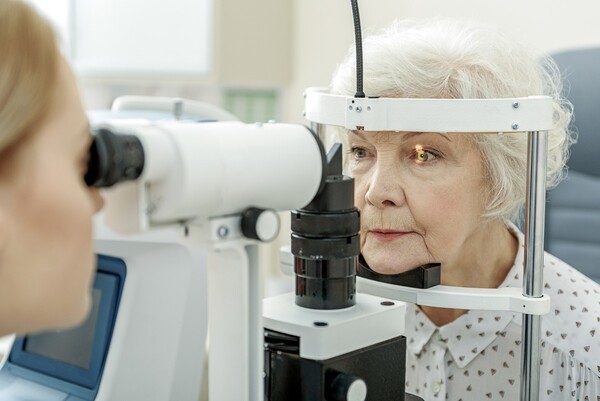
People with age-related macular degeneration (AMD) also had a high risk of depression.
A research team at Samsung Medical Center said so after conducting a follow-up monitoring of the AMD patient and control groups for eight-and-a-half years based on health checkup data at the National Health Insurance Service (NHIS).
The researchers are Professors Kang Se-woong, Kim Sang-jin, and Lim Dong-hee, clinical lecturer Hwang Seong-sun of the Ophthalmology Department, and Professor Shin Dong-wook of the Family Medicine Department.

The team compared and analyzed people with and without ADM among those who had health checkups in 2009.
According to their study, people with AMD had a 15 percent higher risk of depression than those without it. When they also had visual impairment due to AMD, the risk of depression also increased by 23 percent.
That reflected all factors affecting the risk of depression, such as income, residential area, amount of activity, obesity, and companion disease index. The team analyzed that AMD could work as an independent risk factor for depression.
As the reason AMD affected the outbreak of depression, the team cited the disease’s characteristics. Accordingly, it emphasized the need to assess the risk of depression and manage it simultaneously with treating AMD.
“AMD is known to be the most common cause of blindness among older adults in Korea. The mere diagnosis of AMD can cause great anxiety about blindness among patients,” Professor Kang said. “AMD is not a completely curable disease, adding to the depressed feeling of patients.”
Professor Kim said, “Notably, patients who need repeated intraocular injections due to AMD can experience great mental pain and exhaustion. Patients, their family members, and medical professionals should be aware of and cope with these risks.”
According to the national health and nutritional survey and NHIS data, the prevalence of AMD and depression among people 65 and older was 10 percent or higher, indicating the two diseases incur high social and economic costs in an era of populating aging.
“Most AMD patients are older adults more vulnerable to depression,” said lecturer Hwang, the study’s corresponding author. “In treating AMD, they should simultaneously work out asses and manage depression risks.”
The study was published in the latest issue of the journal, Ophthalmology.

